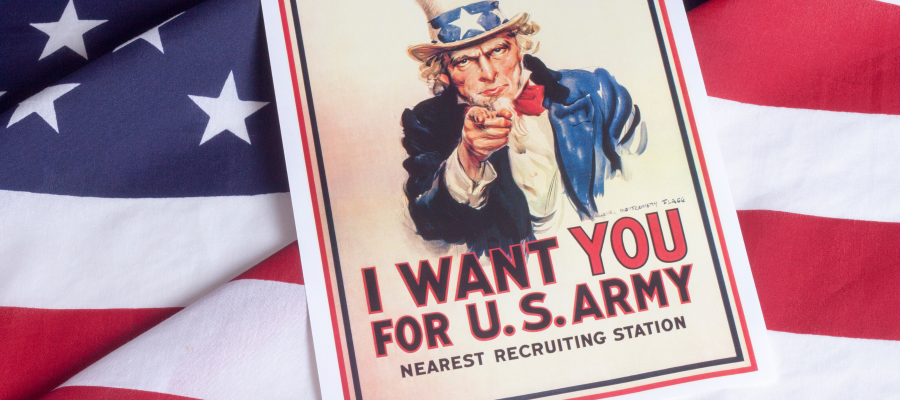Perception, Memory, and Justice
24
Nov 2015
In the criminal justice system, eyewitness testimony can make or break a case. Yet our eyes can deceive us and memory can be a fickle friend. So how much can we really trust eyewitness testimony? Psychological research reveals a lot of deeply troubling facts about human perception and memory that should make us very skeptical of eyewitness testimony. Of course, we don’t need science to tell us that if we witness something from too far away, or if it’s too dark, or if we’re intoxicated, then our testimony is not going to be very reliable. That just seems like common sense. But common sense may...
Read moreIs Anarchy Possible?
25
Jan 2015
Before we can say whether an anarchist future is possible, we should start by saying what exactly anarchism is. Emma Goldman, the great American anarchist, defined it in 1910 as “the philosophy of a new social order based on liberty unrestricted by man-made law.” Anarchists believe that all forms of government—be it a liberal democracy or a socialist state—are based on violence and coercion. To sum it up: government equals tyranny. Many of you might agree with that basic idea that state power is necessarily coercive, yet wonder if there really is an alternative. Perhaps we must suffer some...
Read moreNeurocosmetology
19
Mar 2005
Progress in neuroscience may soon make possible an age of neurocosmetology: the use of drugs to let people affect the way their brains work, so as to make them more effective, more attractive, and more like their "cognitive ideal." A world where all the women are beautiful and all the men handsome might be bearable if boring. But would a society full of type-A's work at all? Can it be rational to choose to change in ways that may change who you are? Should there be moral or legal prohibitions against healthy people messing with their ...
Read moreWhat Is Reading?
10
May 2019
This is an important question, but there is a surprising lack of research in analytic philosophy on this topic. To be fair, considerations about reading are central to Ludwig Wittgenstein’s discussion of rule-following in his later work, especially in the Philosophical Investigations. This discussion is rightly famous, but not because it is about reading in particular. What it is to follow a rule is a deep and important issue in philosophy. But its attention to reading as such has gotten lost by the wayside. How hard can it be to say what reading is? We all do it, every day, in at...
Read moreA Pandemic of Dreams
06
May 2020
Most of the people reading this will have been in lockdown for weeks now. For many people, this has taken a psychological toll. Some of us have been trying to manage the impossible tasks of working from home with home-schooling and childcare. Others have felt themselves enclosed in a bubble of boredom, and have resorted to jigsaw puzzles and binge-watching television to get some relief. Still others have taken advantage of the slowed-down pace of life to learn a new skill—to make sourdough bread, to tackle a new language, or to become musically proficient. Some of us are enduring the...
Read moreFanon, Violence, and the Struggle Against Colonialism
29
Jan 2018
Frantz Fanon was quite a provocative fellow. In his most influential work, The Wretched of the Earth, Fanon says that “Decolonization reeks of red hot cannonballs and bloody knives. For the last can be first only after a murderous and decisive confrontation between the two protagonists.” He also said this: “For the colonized, life can only materialize from the rotting cadaver of the colonist.” Personally, I prefer Gandhi’s model of resistance. His anti-colonialist bona fides are just as strong as Fanon’s. And he resisted colonialism without violence. Strikingly,...
Read moreThe Ethics of Care
11
Jun 2018
This week, we’re thinking about feminism and care ethics. Caring and being cared for are really important for human flourishing. Imagine a person who cared about nothing but him or herself. Such a person would be a monster. On the flip side, a person that nobody else cared about at all would be lonely and invisible. But caring has its risks too. Caring about one person too much can cause you to care about other people too little. Or you can care about the wrong things altogether. Imagine a person who cared mostly about doing everything in their power to embarrass other people. Such a person...
Read moreRacial Profiling and Implicit Bias
18
Jun 2017
Like many people, I think the practice of racial profiling—the police or security practice of targeting individuals for investigation because of their race, ethnicity, or national origin—is obviously wrong. What’s less obvious, to me at least, is exactly why it’s wrong. It’s not that profiling by itself is problematic. But here I’m thinking of the kind of complex profile investigators may come up with by gathering evidence from the scene of a crime, e.g. a murder. Some of that evidence will be purely physical in nature, but there might also be...
Read moreBlack Solidarity
05
Feb 2012
February is Black History Month. So we thought it might be a good time to do an episode on Black Solidarity. Now I admit that this topic may seem to be a bit, shall we say, 20th century. When this country still suffered from rampant racism, it made perfect sense for black people to band together on the basis of their shared history and experience to fight it. But now, in the 21st century? in the age of Obama? Why should we bother with matters racial anymore? If you have such a reaction, you may hold the view – a view which I don’t really...
Read moreNew Blog Policy
26
Feb 2010
Well, it's been awhile since we've updated our blog. Since both John and Ken are extremely busy -- not only putting on episodes of philosophy talk, but with full time day jobs and research agendas (which means books and articles to write) -- they just don't get around to blogging that often, as you can see. We always invite our guests to blog, but they are busy people too and seldom take us up on the invitation. We had contemplated just closing down our blog, but thought before taking that step, we'd try one more innovation. What we're going to do is for every show, post something...
Read more100 and Counting
28
Aug 2006
Today marks our 100th episode of Philosophy Talk. We're going to throw something of an on-air party to celebrate. We'll have five of our all time favorite guests drop by to wish us well and to tell us what they're currently up to. The five are Anthony Appiah, Anne Ashbaugh, Alison Gopnik, Jenann Ismael and Martha Nussbaum. Plus will try to take lots of calls from listeners about what they'd like to see -- or hear -- us do in the next 100 episodes. It should be lots of fun. Of course, it's going the be kind of hectic getting five guests on and off, along with callers. But hey, it's a party. If...
Read moreWhat Would We Lose If We Had No Art?
27
Oct 2020
Think about the art you’ve enjoyed in your life: the novels, the television, the music, the poetry, the sculpture, the paintings—the list goes on. Now try to imagine a scenario in which none of this art had ever been made. Even though non-fiction books have been published, and warning chimes still witness the closing of subway doors, there are no symphonies, and no novels for you to tote to the beach. There’s no such thing as an art museum, even though natural history museums everywhere still proudly display their fossils and dino bones. Network TV broadcasts news all day, every day. ...
Read moreThis Blog Post Is False
21
May 2023
Some say the world is full of contradictions, like “parting is such sweet sorrow.” Parting is sweet, but parting is also sad; and sweetness and sadness are opposites. But logicians would say that this not a true contradiction; it’s just mixed emotions. A true contradiction would be like if Romeo was sad and not sad. Something would have to be both true and false at the same time. Take the famous Liar Paradox. If I say, "I’m lying right now," I'm telling you I'm lying, so if I am actually lying the sentence is true—in which case I'm not lying. But if I am telling the truth, that...
Read more[AUDIO] When Driverless Cars Go Wrong
23
May 2017
The introduction of driverless cars to our roads brings with it moral and legal questions that we have never faced before. These new vehicles, controlled by artificial intelligence, are promised to make driving safer. However, with the inevitability of accidents, who is to blame for the harm caused by them? Does this responsibility lie with the car manufacturers, or must we simply accept that sometimes accidents happen? David Edmonds speaks with John Danaher on this episode of Philosophy 24/7, "Robots and Retribution". In a future with more and more controlled by artificial intelligence...
Read moreShould Hate Speech be Protected?
29
Sep 2017
Hate speech: it can exclude, stigmatize, and potentially threaten our progress toward equality. So why is hate speech protected under the First Amendment, and should it actually be protected? In this interview from the NYTimes, Erwin Chemerinsky, one of the foremost legal scholars on the First Amendment, argues that the First Amendment protects hate speech for good reason. Social progress has always depended on the protection of free speech, and because how hate speech is defined is both malleable and circumstance-dependent, institutions cannot ban free speech without...
Read moreHow Many Children?
28
Apr 2016
The world already has too many people. 7.3 billion. It’ll probably hit over 11 billion by the end of the century. Too many people, too few resources, too much damage to the environment. Disaster, Disaster, Disaster. But that doesn’t answer the question. Do people have the right to have children or not? General theories of right and morality are above my pay-grade. But I’m certain that some people don’t have the right to have children. In particular, I don’t think teenage boys have the right to make women pregnant. We don’t let kids drive...
Read moreWhy Propaganda Matters
01
Jun 2015
This week, we're thinking about Propaganda – how it works, why it matters. I feel about propaganda sort of the way I feel about pornography -- I’m not exactly sure how to define it, but I definitely know it when I see it. Turn to any good dictionary and you will find a definition of propaganda. Here is how the Merriam Webster online dictionary defines it. “Propaganda -- ideas that are often false or exaggerated and that are spread in order to help a cause, a political leader, a government, etc.” But this strikes me as a...
Read moreGreetings from Down Under!
14
Jul 2005
You may have noticed that neither John nor I nor our on-air guests have been blogging much recently. But we're all about to get back in the saddle. I've been travelling for the past few weeks. I'm in Australia, even as I write. I gave a paper a couple of weeks ago at the University of Sydney at the annual meeting of the Australasian Associaton for Philosophy. After eight fun-filled days in Sydney, it was off to Canberra, where I am a visiting fellow at the Australian National University until August 15. Before...
Read moreFoucault on Power
03
Dec 2018
Michel Foucault had some truly brilliant and important insights about power, insights that have had an important influence on some of today’s most prominent activist movements, and that arguably should be having more of an influence on others. It’s true that there’s a lot to take issue with in his work—I’ll come to that in a moment—but as I see it, there’s also a lot to be inspired by. First of all, Foucault rejects the standard picture according to which power is always about the strong oppressing the weak, the rich oppressing the poor, the monarchy oppressing its subjects. Instead he...
Read more#FrancisOnFilm: Authenticity at Sundance
30
Jan 2017
One of the glorious aspects of the Sundance film festival is that you never quite know what you are going to see. Some films are truly awful, some are bizarre or boring, and others are unassuming gems. One of this year’s gems is Francis Lee’s God’s Own Country. Set in Yorkshire during lambing season, the film layers the beauty of the countryside, the lonely struggles of rural life, same-sex love, and immigration in the UK. After the screening, there was a Q & A with Lee, Josh O’Connor, who played the lead as the Yorkshire farmer Johnny, Alec Secareanu who played the Romanian...
Read moreSanctuary Cities
16
Nov 2019
What gives a city the right to offer sanctuary to unauthorized immigrants? Can local or state government ever be justified in defying the laws of the nation? These are some of the questions we’re asking in this week’s show, recorded live in front of an audience at San Francisco State University. The issue of sanctuary cities is a thorny one because it is the federal government’s exclusive right to make and enforce immigration policy, which might lead you to think that once the feds have established a policy, then a city like San Francisco, or indeed the entire state of California, can’t just...
Read moreAn Argument for Regulating Automation
14
Dec 2017
As automation displaces human labor, a universal basic income (UBI) plan may seem like the perfect solution. Introduce UBI, so that displaced workers have a basic income to fall back on. The idea seems simple enough. But why wait for UBI to mitigate the impacts of automation? The proposal is attractive (a UBI could eliminate poverty, for example, and that's no feat to underappreciate), yet some advocates of the plan may accept the current trend of technological advancement in the workplace too fatalistically. They accept that artifical intelligence could eventually obviate the...
Read moreAdorno and the Culture Industry
23
Mar 2018
A lot of the popular culture we consume these days is produced and distributed by large studios and record companies. Should that worry us? Are doomed to mediocre music, television, and film? Or even worse: are we doomed to songs, shows, and movies that secretly serve a hegemonic propaganda machine? That’s what Theodor Adorno seems to have believed. Back in the 1940s, he and Max Horkheimer published a rather, well, feisty chapter on what they called the “culture industry.” Their argument was complicated, and it was dressed up in sometimes impenetrable language—that’s how you got famous those...
Read moreMoral Luck
11
Jan 2014
Suppose Ken and I buy tickets for the California Lottery. We go to the same 7-11, pay the same amount, push the same button to get a ticket with randomly generated numbers. Ken, lucky fellow, plays the winning number and collect $10 million. (This is a fictional example!). I play a losing number, and get nothing. That’s a pretty good example of luck. Ken was lucky, I wasn’t. Suppose I argue that the result --- Ken with his $10 million, me with nothing --- is unfair. After all, we paid the same amount, put the same amount of thought into choosing...
Read moreBeliefs Gone Wild
14
May 2011
The human mind is a wondrous thing. It has uncovered the innermost secrets of the natural world; it’s created art and democracy; and even explored the depths of its own operations. But human minds can be filled to the brim with superstition, prejudice, and all kinds of falsehoods. Which brings us to today’s topic: Beliefs Gone Wild! Where do all these false beliefs come from? Why are so many of our beliefs out of sync with reason, evidence, and argument? And, what, if anything, can we do to guard against falsehood,...
Read more





















